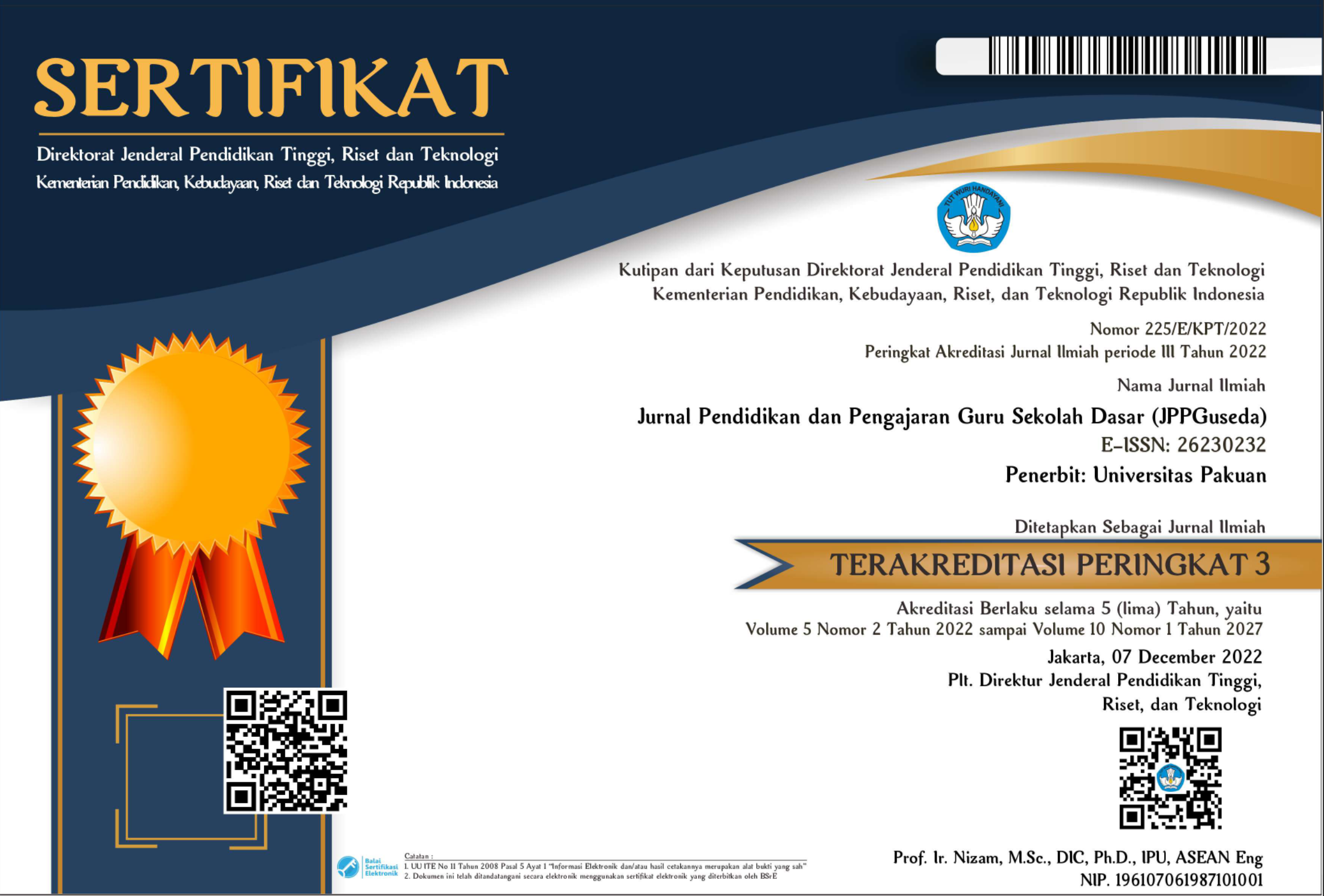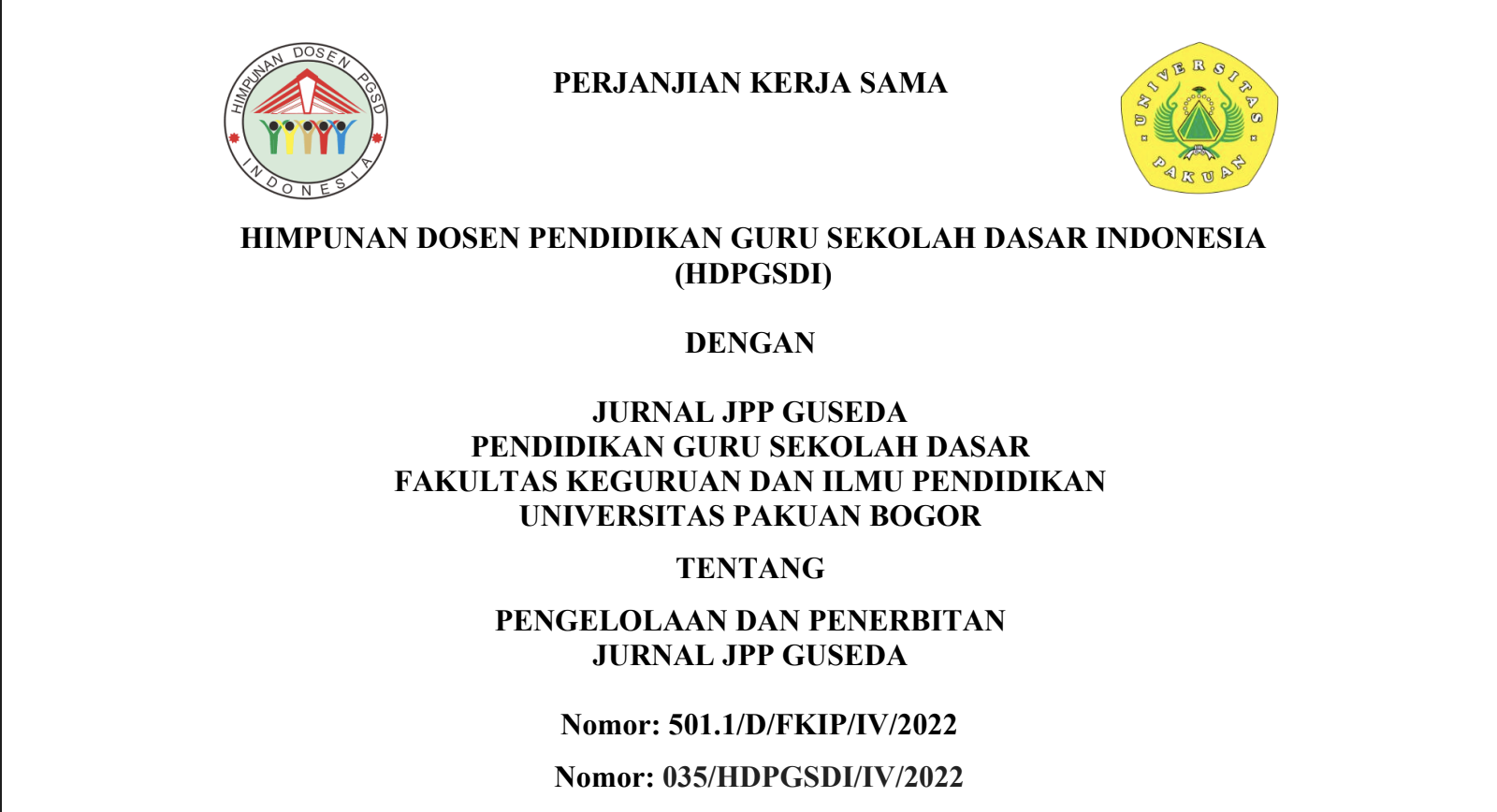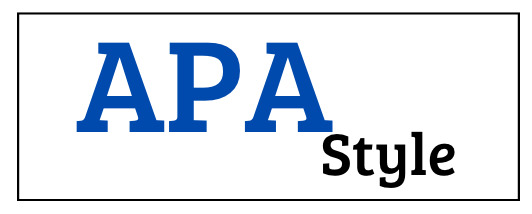ANALISIS LITERASI DIGITAL CALON GURU SD DALAM PEMBELAJARAN BERBASIS VIRTUAL CLASSROOM
Abstract
ANALYSIS OF DIGITAL LITERACY FOR ELEMENTARY SCHOOL TEACHER CANDIDATES IN VIRTUAL CLASSROOM BASED LEARNING
Abstract. Self-directed learning is a process in which individuals learn without the help of others supported by digital and cellular technology, technology applications are developed to take advantage of the concept of independent learning. By implementing online learning strategies, digital literacy skills are absolutely needed by students. This is because it is impossible to implement online learning without being supported by high digital literacy. This study aims to describe the digital literacy of elementary school teacher education students in virtual classroom-based learning. The method used is descriptive qualitative research with a sample of 74 PGSD students. The results showed that most students had basic internet skills, PGSD students were able to find and retrieve information from the internet, and use it effectively.
Keywords
References
.[1] Walsh, K. 2017. Self-directed learning at the point of care. InnovAiT: Education and Inspiration for General Practice, 10(3), 178182.
Mohammadyari, S., & Singh, H. 2015. Understanding the effect of e-learning on individual performance: The role of digital literacy. Computers and Education.
Bullock, S. M. (2013). Using digital technologies to support Self-Directed Learning for preservice teacher education. Curriculum Journal, 24(1), 103120.
Curran, V., Gustafson, D. L., Simmons, K., Lannon, H., Wang, C., Garmsiri, M., Wetsch, L. (2019). Adult learners perceptions of self-directed learning and digital technology usage in continuing professional education: An update for the digital age. Journal of Adult and Continuing Education, 25(1), 7493. https://doi.org/10.1177/1477971419827318
Merriam, S. B., & Bierema, L. L. (2013). Adult Learning: Linking Theory and Practice. Journal of Chemical Information and Modeling, 53(9), 16891699.
R. Purnamasari et al., Student Center Based Class Management Assistance Through The Implementation Of Digital Learning Models,†J. Community Engagem., vol. 02, no. 02, pp. 4144, 2020.
Biggs, J dan Tang, C. (2013). Teaching for quality learning at university. (2nd Edn.). Innovations in Education and Teaching International (Vol. 50). Buckingham: The Society for Research into Higher Education and Open University Press. https://doi.org/10.1080/14703297.2013.839332
Benson, V., & Kolsaker, A. (2015). Instructor Approaches to Blended Learning: A Tale of TwoBusiness Schools. The International Journal of Management Education, 316325. https://doi.org/https://doi.org/10.1016/j.ijme.2015.10.001
Holmberg, B. (2005). Theory and Practice of Distance Education. In Theory and Practice of Distance Education.
Fitriana, D. (2018). Peran Media E-Learning Dalam Pembelajaran Untuk Mengoptimalkan Kemampuan Literasi Matematika dan Norma Sosiomatematik. Program Studi Pendidikan Guru Sekolah Dasar Program Studi Pendidikan Matematika Universitas Muria Kudus, (0291), 5862.
Zhu, X., & Liu, J. (2020). Education in and After Covid-19: Immediate Responses and Long- Term Visions. Postdigital Science and Education.
Rodhin, R. (2011). Internet dalam konteks perpustakaan. Pustakaloka, 3(1), 119.
Y. Suchyadi, N. Safitri, and O. Sunardi, The Use Of Multimedia As An Effort To Improve Elementary Teacher Education Study Program College Students Comprehension Ability And Creative Thinking Skills In Following Science Study Courses,†JHSS (Journal Humanit. Soc. Stud., vol. 04, no. 02, pp. 201205, 2020.
Nurjanah and Y. Suchyadi, Media Audio Visual Sebagai Media Peningkatan Keterampilan Menulis Teks Deskripsi Di SMP Negeri 3 Kota Bogor,†Pedago. J. Ilm. Pendidik., vol. 4, no. 1, pp. 4044, 2020.
Kurnianingsih, I., Rosini, R., & Ismayati, N. (2017). Upaya Peningkatan Kemampuan Literasi Digital Bagi Tenaga Perpustakaan Sekolah dan Guru di Wilayah Jakarta Pusat Melalui Pelatihan Literasi Informasi. Jurnal Pengabdian Kepada Masyarakat (Indonesian Journal of Community Engagement), 3(1), 6176.
Adiarsi, G. R., Stellarosa, Y., & Silaban, M. W. (2015). Literasi Media Internet di Kalangan Mahasiswa. Humaniora,
Shopova, T. (2014). Digital literacy of students and its improvement at the university. Journal on Efficiency and Responsibility in Education and Science, 7(2), 2632.
Martin, A. (2005). DigEuLit a European Framework for Digital Literacy: a Progress Report. Journal of ELiteracy, 2, 130136
Curran, V., Matthews, L., Fleet, L., Simmons, K., Gustafson, D. L., & Wetsch, L. (2017). A review of digital, social, and mobile technologies in health professional education. Journal of Continuing Education in the Health Professions, 37(3), 195206.
Silamut, A., & Petsangsri, S. (2020). Self-directed learning with knowledge management model to enhance digital literacy abilities. Education and Information Technologies.
Meyers, E. M., Erickson, I., & Small, R. V. (2013). Digital literacy and informal learning environments: An introduction. Learning, Media and Technology, 38(4), 355367.
Gilster, P. (2016). Digital Literacy. International Journal of Digital Literacy and Digital Competence, 7(3), 112. https://doi.org/10.4018/ijdldc.2016070101
Techataweewan, W., & Prasertsin, U. (2018). Development of digital literacy indicators for Thai undergraduate students using mixed method research. Kasetsart Journal of Social Sciences, 39(2),
Pratiwi, N., & Pritanova, N. (2017). Pengaruh Literasi Digital Terhadap Psikologis Anak Dan Remaja.Semantik.
D. Destiana, Y. Suchyadi, and F. Anjaswuri, Pengembangan Instrumen Penilaian Untuk Meningkatkan Kualitas Pembelajaran Produktif Di Sekolah Dasar,†J. Pendidik. Pengajaran Guru Sekol. Dasar (JPPGuseda ), vol. 03, no. September, pp. 119123, 2020.
DOI: 10.55215/jppguseda.v4i1.3191
 Abstract views : 1167
Abstract views : 1167
Refbacks
- There are currently no refbacks.
Copyright (c) 2021 Jurnal Pendidikan dan Pengajaran Guru Sekolah Dasar (JPPGuseda)

This work is licensed under a Creative Commons Attribution-NonCommercial 4.0 International License.




















